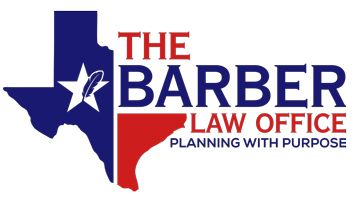Does Your New Year's Resolution Include Estate Planning? 9 Questions to Get You Started
Many people start the New Year with big intentions, like writing the Great American Novel or losing 10 pounds. Creating an estate plan, including a last will and testament, is typically first on the list of priorities. How do you begin the process of crossing estate planning off your list of things to do?
Prior to anything else, learn what estate planning is and how it benefits your family. One approach to safeguard yourself and your loved ones both throughout your life and after death is to prepare an estate. You have the power to decide who takes over in the event of your incapacitation or death. Failing to put your desires in writing can cost you money and effort, cause disputes with family members, and keep your estate in probate court.
To create your estate plan, you basically need to provide answers to nine questions.

If you are incapable of handling finances yourself, who would you choose to make choices on your behalf?
Who would you like to help you manage your finances if you are incapacitated? To access and pay bills from your bank accounts, you should appoint a trustworthy person as your agent.
Should you become incapacitated, who would you want to make medical choices for you?
Who would you like to act as your healthcare proxy to interact with your doctors and make decisions regarding your care if you are incapacitated or unable to speak for yourself?
Do you have any wishes for your end-of-life care?
Leaving these decisions to your loved ones is worse, even though they are tough to consider. Are there any end-of-life desires you would like to have fulfilled if you have a terminal illness or condition?
What are your assets?
The properties you possess and their titles should be known to you. You should confirm that beneficiary designations for any payable-on-death accounts are in place for any bank accounts, investments, retirement accounts or IRAs, and life insurance policies you own. It is your name that transfers, not your will, so be sure to keep those updated while creating these documents.
Who are your beneficiaries?
Though state rules may determine a different distribution if you don't identify beneficiaries in your will, you may believe that particular family members receive your property and assets. Decide who you want to inherit your belongings. Additionally, you have the option to set up a trust to hold funds for minor beneficiaries.
Who would you like to look after your child or children?
Minor children may require a guardian in the event of your death. Choosing a guardian is a tough choice, but you should make it, not a probate judge who is unfamiliar with your kids and family dynamics.
Who will take care of your pet(s) in your absence?
You must decide who you want to give your pet to and whether you want to leave money for their upkeep because the law views your pet as property rather than a beneficiary.
Who would you choose to oversee your estate?
You need to designate a person or people to manage your estate and carry out your wishes. We refer to this individual as an executor or personal representative.
Which type of insurance—life or long-term care—is necessary?
Consider getting term life insurance for yourself and your dependents if you have small children or need to provide for them in the event of an early death. To help with the substantial costs associated with nursing homes and end-of-life care, you can also consider looking into long-term care insurance.
What Comes Next
You're almost done with your estate planning if you can respond to these nine questions. It is now only a matter of getting it in writing. Financial power of attorney, healthcare directive, and will are the three fundamental legal documents that you require.
